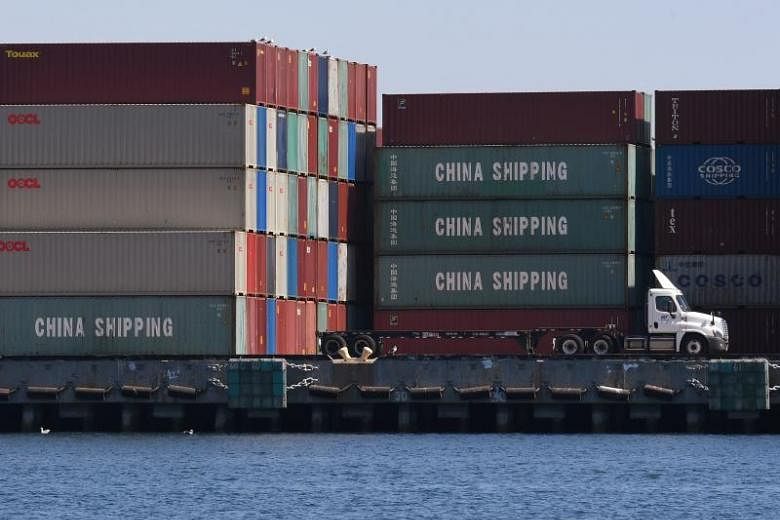BEIJING/WASHINGTON • China has called planned US tariffs on an additional US$300 billion (S$417 billion) in Chinese goods a violation of accords reached by US President Donald Trump and Chinese leader Xi Jinping, signalling an American move earlier this week to delay some of those levies was not enough to stave off retaliation.
The new 10 per cent tariffs have taken the US and China off the track of resolving their dispute through negotiation, the State Council Tariff Committee, which has overseen tit-for-tat retaliation, said in a short statement yesterday.
China "has no choice but to take necessary measures to retaliate", it said, without specifying what the nation would do.
Yesterday, Mr Trump said any trade deal the US makes with China must be on US terms.
"China, frankly, would love to make a deal, and it's got to be a deal on proper terms. It's got to be a deal, frankly, on our terms. Otherwise, what's the purpose?" Mr Trump said in an interview on New Hampshire radio station WGIR.
Mr Trump announced the new tariffs earlier this month, after which China halted purchases of US agricultural goods and allowed the yuan to weaken.
Still, top negotiators from both sides held a phone call earlier this week and the US delayed the imposition of some of the new tariffs. Negotiators also agreed to have another phone call in the next two weeks and people familiar with the situation said earlier that the Chinese delegation is sticking to its plan to travel to the US next month for face-to-face meetings.
The Chinese announcement made no mention of Mr Trump's decision on Wednesday to postpone penalties on about 60 per cent of those goods until Dec 15. Among the products given a reprieve are mobile phones, laptops, computer monitors, shoes and clothing.
Trade between the world's two biggest economies has plunged. Chinese imports of American goods fell 19 per cent from a year earlier in July, while exports to the US declined 6.5 per cent.
The Chinese statement indicates that Beijing does not think the US delaying some of the tariffs is enough, said Mr Zhou Xiaoming, a former Ministry of Commerce official and diplomat. China is very serious and is sticking to the position that no new tariffs should be imposed at all, Mr Zhou said, adding that Beijing's retaliation "may not be limited to tariffs".
Mr Hu Xijin, the editor-in-chief of the Communist Party's Global Times newspaper, echoed that sentiment. He tweeted before the retaliation announcement yesterday that China wants both sides to respect the consensus reached when Mr Trump and Mr Xi met at the Group of 20 summit in Osaka in June. "I doubt the Chinese side will resume large-scale purchase of US farm goods under the current circumstances," he said.
Less than 12 hours before the Chinese statement on retaliation, Mr Trump had appeared to float the possibility of another meeting with Mr Xi.
In a flurry of tweets, Mr Trump defended his tariff decisions, praised Mr Xi and urged the Chinese President to "humanely" resolve the protests that have gripped Hong Kong for more than two months.
He ended the posts with an apparent overture to Mr Xi - writing "Personal meeting?" - without clarifying whether he was suggesting another summit.
Yesterday's statement could indicate that it would not take long for Beijing to reveal its own retaliatory tariffs, according to Mr Tu Xinquan, dean of the China Institute for WTO Studies at the University of International Business and Economics in the Chinese capital.
The response is about expressing China's stance even though policymakers know the impact on the US economy will be limited, he said.
BLOOMBERG, ASSOCIATED PRESS, REUTERS
SEE EDITORIAL

